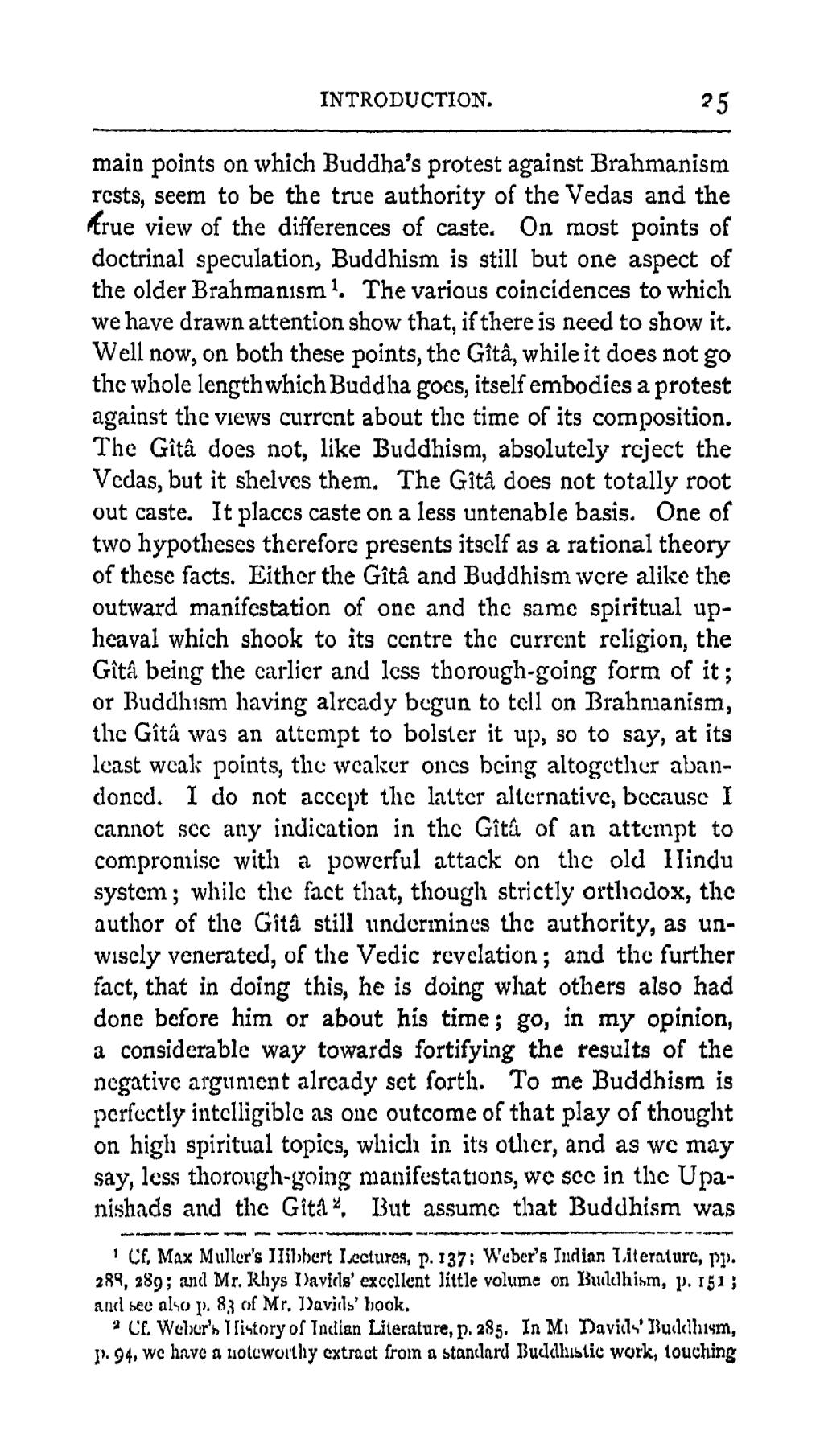main points on which Buddha's protest against Brahmanism rests seem to be the true authority of the Vedas and the true view of the differences of caste. On most points of doctrinal speculation, Buddhism is still but one aspect of the older Brahmanism[1]. The various coincidences to which we have drawn attention show that, if there is need to show it. Well now, on both these points, the Gîtâ, while it does not go the whole length which Buddha goes, itself embodies a protest against the views current about the time of its composition. The Gîtâ does not, like Buddhism, absolutely reject the Vedas, but it shelves them. The Gîtâ does not totally root out caste. It places caste on a less untenable basis. One of two hypotheses therefore presents itself as a rational theory of these facts. Either the Gîtâ and Buddhism were alike the outward manifestation of one and the same spiritual upheaval which shook to its centre the current religion, the Gîtâ being the earlier and less thorough-going form of it; or Buddhism having already begun to tell on Brahmanism, the Gîtâ was an attempt to bolster it up, so to say, at its least weak points, the weaker ones being altogether abandoned. I do not accept the latter alternative, because I cannot see any indication in the Gîtâ of an attempt to compromise with a powerful attack on the old Hindu system; while the fact that, though strictly orthodox, the author of the Gîtâ still undermines the authority, as unwisely venerated, of the Vedic revelation; and the further fact, that in doing this, he is doing what others also had done before him or about his time; go, in my opinion, a considerable way towards fortifying the results of the negative argument already set forth. To me Buddhism is perfectly intelligible as one outcome of that play of thought on high spiritual topics, which in its other, and as we may say, less thorough-going manifestations, we see in the Upanishads and the Gîtâ[2]. But assume that Buddhism was
- ↑ Cf. Max Müller's Hibbert Lectures, p. 137; Weber's Indian Literature, pp. 288, 289; and Mr. Rhys Davids' excellent little volume on Buddhism, p. 151; and see also p. 83 of Mr. Davids' book.
- ↑ Cf. Weber's History of Indian Literature, p. 285. in Mr. Davids' Buddhism, p. 94, we have a noteworthy extract from a standard Buddhistic work, touching p. 26 the existence of the soul. Compare that with the corresponding doctrine in the Gîtâ. It will be found that the two are at one in rejecting the identity of the soul with the senses &c. The Gîtâ then goes an to admit a soul separate from these. Buddhism rejects that also, and sees nothing but the senses.
